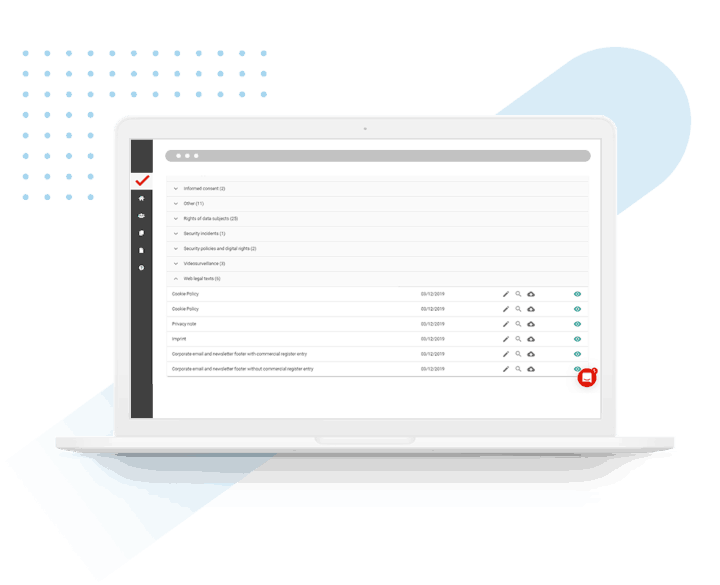Frequently Asked Questions
What are cookies?
“Cookies” are data records that are sent from the web server to the user’s browser and stored there for later retrieval. On the one hand, these are necessary to correctly display a website (“technically necessary cookies”). On the other hand, they are also used for other purposes, for example for advertising purposes, to analyze user behavior, or to integrate social plugins.
Also, cookies are round, flat, yummy pastries… but that’s another story.
What types of cookies are differentiated in a cookie policy?
Cookies can be divided into different categories, which are based on the following criteria:
1. Who manages the cookies. Depending on who manages the cookies, we can differentiate between:
❏ First-party cookies. If these are sent from a computer or a domain, which is managed by the owner of the website, to the end device of the user, we speak of first-party cookies.
❏ Third-party cookies. If these are sent to the user’s end device from a computer or a domain that is not managed by the owner of the website, these are referred to as third-party cookies.
2. The purpose of processing. Depending on the purpose, the cookies can be:
❏ Technical cookies. Technical cookies are the ones that are essential for the correct functioning of a web portal. These are cookies that enable the user to surf the website and to use the various options or services on the website.
❏ Personalisation cookies. These cookies enable the user to predetermine features on his end device according to a number of criteria, such as Specify or personalise the language, browser type used to access the service, etc., and some features of the general website options.
❏ Analytics cookies. Analytics cookies are those that enable their owner to monitor and analyze the behavior of the users of the website to which they are connected.
❏ Advertising cookies. Advertising cookies are those that store information about user behaviour that is obtained by continuously monitoring surfing habits, which enables the development of a specific profile for displaying advertisements on this basis.
3. The duration that cookies remain stored.
❏ session cookies. These are temporary cookies that are deleted when the browser is closed. If the browser is restarted and you go back to the website, the website will not recognise the user again.
❏ Permanent cookies. These cookies remain stored in a subfolder of the user’s browser until you manually delete them or their term, which is set in the cookie, has expired.
When is cookie consent required?
If cookies on the end device of the website user are not only used to protect the legitimate interests of the website operator or a third party, the consent of the website user is required in accordance with Art. 6 Para. 1 GDPR.









